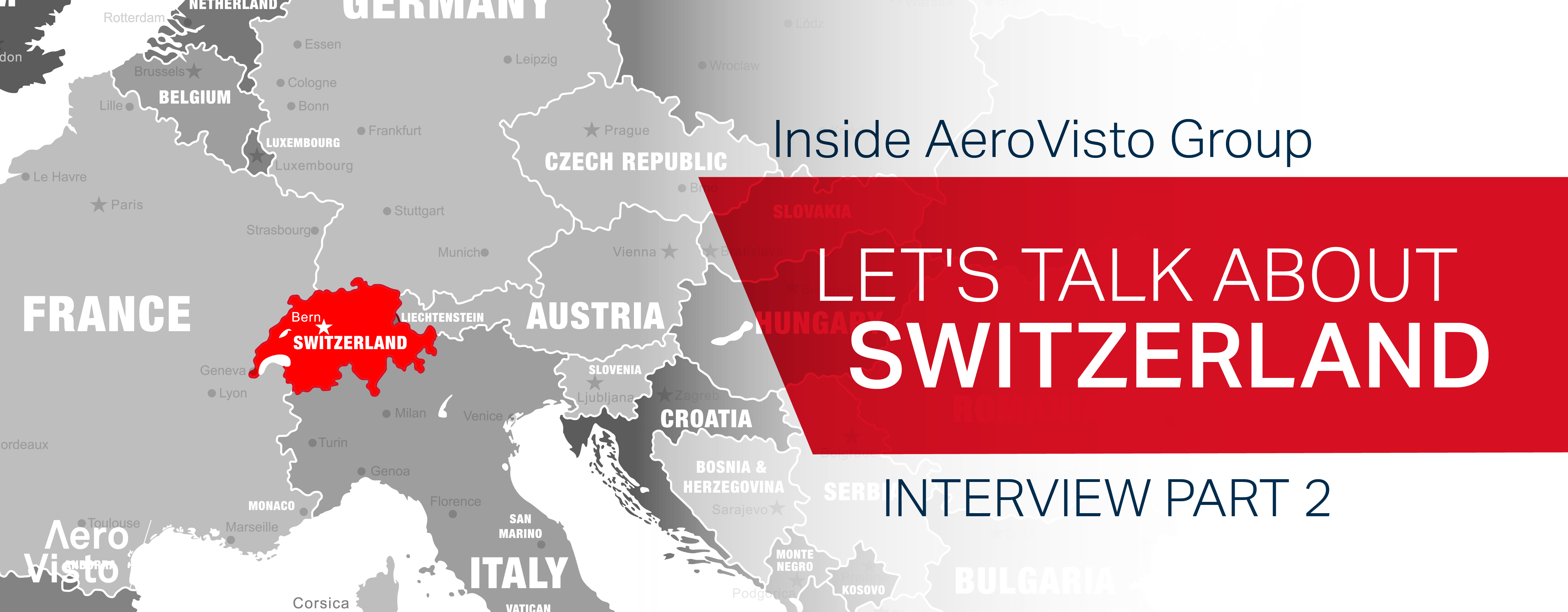
Inside AeroVisto Group
Let’s talk about Switzerland!
INTERVIEW PART 2
In the first part of the interview, we learned what makes Switzerland so special as a business location and why a Swiss company with its attractive product mix can convince and meet the needs of customers internationally.
In the second part of the interview, we asked Carsten Matthiesen (CM) and Hermann Bauer (HB), if there is any additional administrative work involved in handling logistics when working with a Swiss company and whether there are any special hurdles due to import and export regulations or customs duties.
Switzerland is not part of the EU. That is a fact. So for many, it surely raises the question: Is there an additional administrative burden in the handling of logistics? Or are there special hurdles due to import and export regulations or customs duties?
CM: Yes, we are repeatedly asked about these topics. Let’s first deal with the topic of tax and regulations – because this is where there are usually the greatest concerns. And to cut a long story short: there is no reason for this – because there are no additional costs for the end customer.
How come?
CM: Parts supplied by aviation companies to AeroVisto have the so-called “Aviation Part Certificate” according to EASA Form 1. With this certificate, no customs or other duties are charged within the EU. This does not mean that there is no customs clearance. But that isnothing complicated. For this we work together with capable customs agents, whose task it is that the processing runs smoothly.
HB: There is one difference to shipping within the EU: when importing into Switzerland, an income VAT is calculated on the proforma values of the declared parts. However, this is later refunded at 100% to AeroVisto and is thus a transitory tax item. But this procedure is not unique to Switzerland.
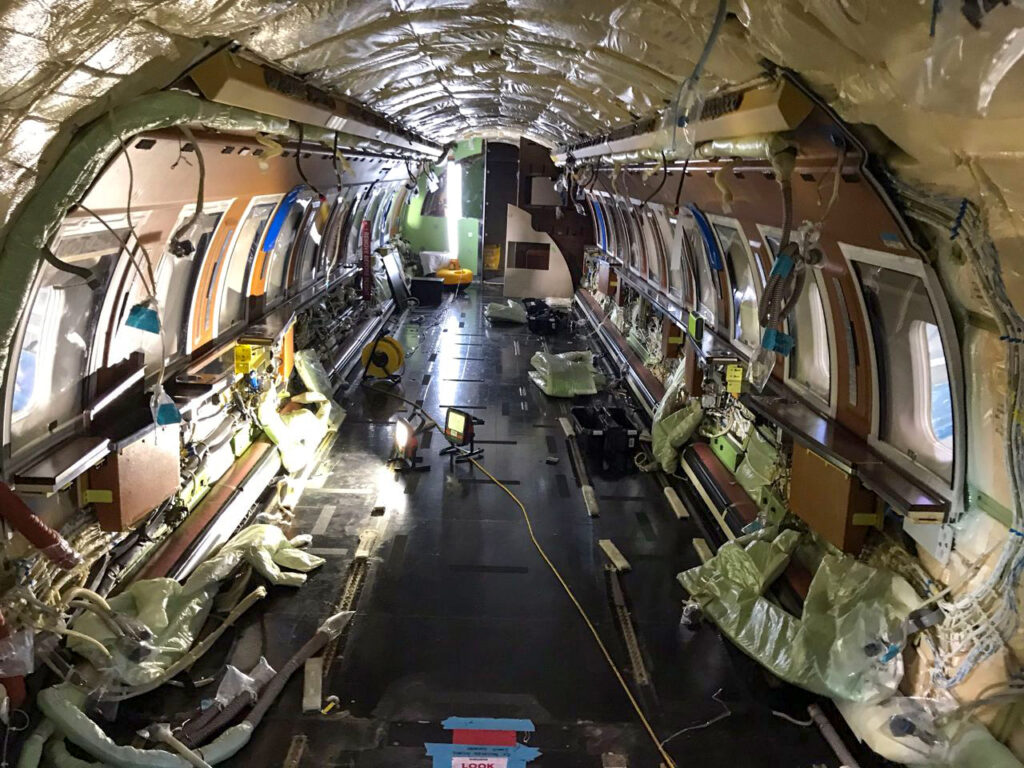
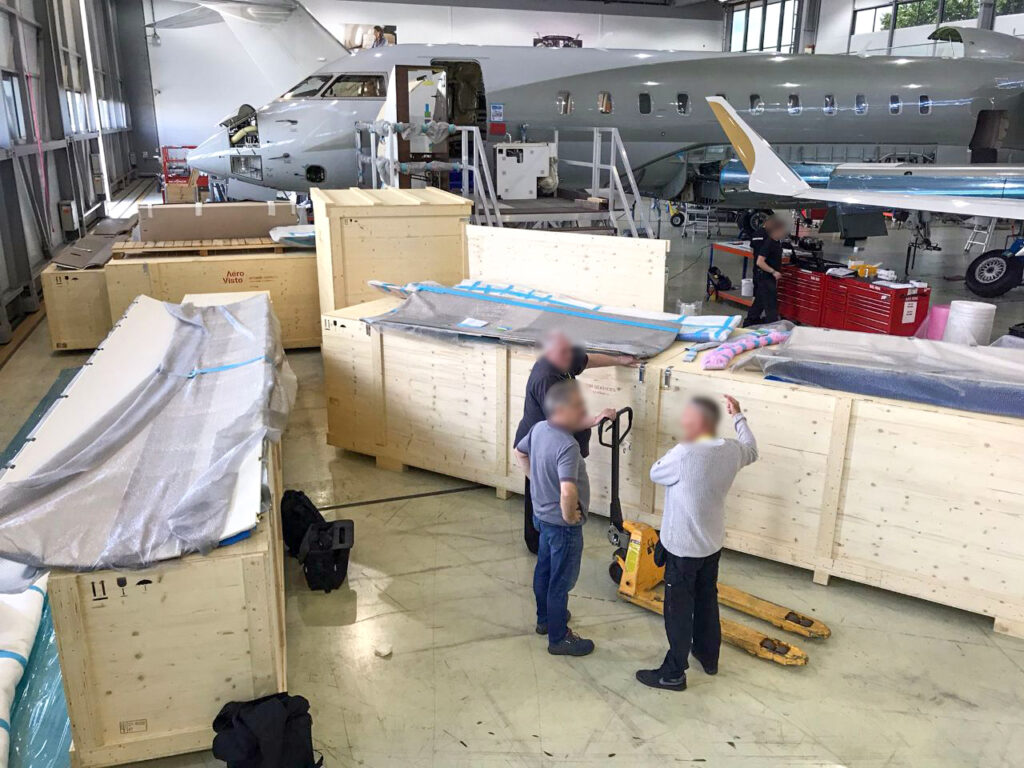
CM: That means that the movement of goods with Switzerland is no different than the movement of goods with the USA or, since recently, with the UK. As you know, the major manufacturers of business jets have their locations outside the EU. This applies also to most of the suppliers in the aviation industry. Thus, a lot of very expensive parts are shipped across the EU borders every day.
HB: For MRO companies, with a sound logistics department, this is daily routine and no hurdle at all. However, we always provide support and are happy to arrange, for example, a capable customs agent who can assist.
Are currency risks an issue?
HB: No, that’s not an issue. Our customers outside the EU are free to choose whether they want to be invoiced in Euros or in US dollars. So if there are currency risks, it’s on AeroVisto’s side.
Then let’s finish by talking about whether there is any additional work involved in handling logistics when working with AeroVisto?
CM: I would clearly deny that! Or to put it another way, the additional expense is so marginal that it doesn’t weigh at all.
How do you explain that to a customer?
CM: You just have to compare where the difference is. Let’s assume that a business jet is at an MRO in Stuttgart. And let’s assume that the question is whether the interior should go to Berlin for refurbishment or to us in Staad, Switzerland. In terms of distance, the Staad location scores points, but that is not the decisive factor. More importantly, the effort on site at the MRO is the same: Removing the parts, creating the part number lists, creating the delivery bill. For Switzerland, the delivery bill is used to create the pro forma invoice mentioned earlier.
And after the outgoing inspection, the real work begins with packing and loading. Once this is done, the interior is out of sight and out of mind. The organization and handling of the transport are standard processes that are always similar. Whether the goods cross a national border or not is no longer an important factor.
HB: And that’s the decisive point: it’s not the transport itself that challenges MROs. It is much more the very time-consuming preparation of the shipment in a refurbishment project.
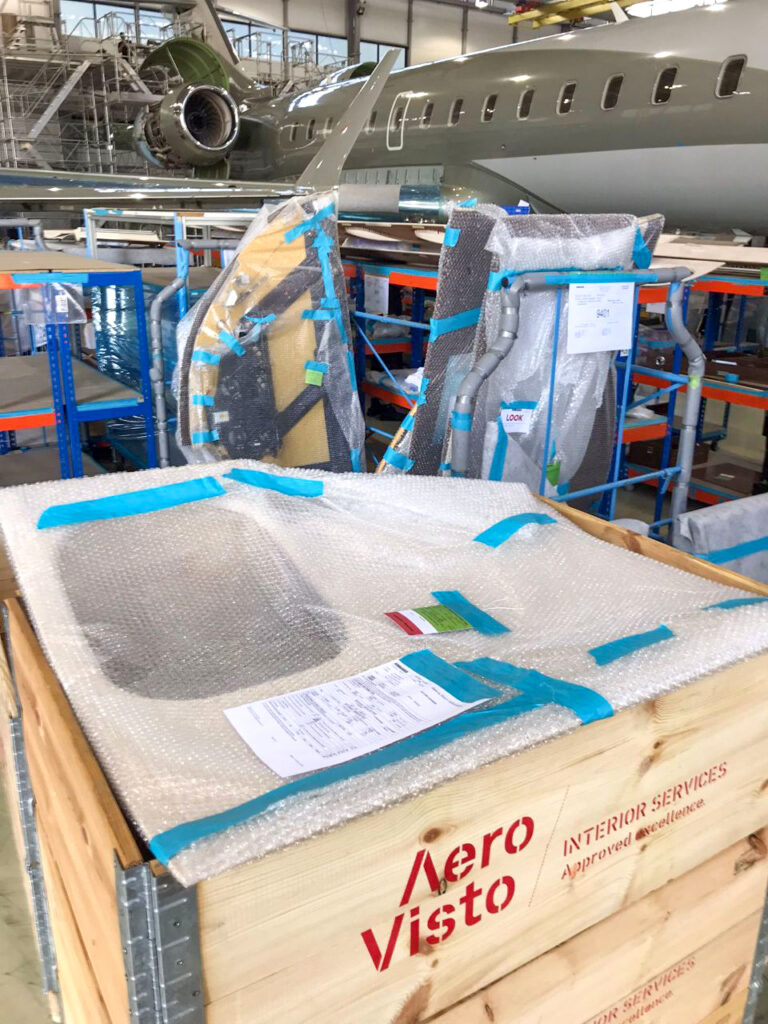
Why is that?
HB: Interior projects are not really the daily business for MROs. Every aircraft cabin is different somehow. So basically, it’s always a special project that you have to deal with.
MROs often ship engines and mechanical parts. They’re prepared for that, they’re experienced in that.
But interiors are made up of hundreds of parts. The elements are unwieldy and sometimes fragile. So highly skilled technicians and mechanics start asking themselves: how do we pack this now, in the most clever way? How do we protect the parts? What do we have to do to be on the safe side in terms of insurance in the event of damage? This keeps the MRO teams very busy, when they have enough work to do elsewhere.
CM: But the attractiveness of our offer is not defined by the price alone. Rather, it is the appropriate mix we offer our customers that convinces them of AeroVisto.
How does AeroVisto support customers on this tricky issue?
CM: We have always advised our customers on this subject and have been happy to share our experience and expertise in packaging and transport with them. But with our newest offer, we can support them even better.
You are talking about AeroVisto’s LOGISTICS SOLUTIONS?
HB: Yes, that’s exactly what Carsten is talking about.
We have developed a packaging concept that makes it possible to safely transport all parts of an aircraft cabin. For this purpose, we have specially designed and manufactured transport boxes.
However, our LOGISTICS SOLUTIONS are more than just a well-thought-out packaging concept. As mentioned before, we know how painful it is for MRO companies when well-trained and thus expensive technicians and mechanics have to spend their time packing aircraft parts.
We want to ease that “pain” as well. Which means we send our MOBILE SERVICE TEAMS, on-site to the customer, directly to the aircraft. There, experienced staff, who know exactly what they have to do, take care of packing all the parts that have to come to us.
HB: And that’s the decisive point: it’s not the transport itself that challenges MROs. It is much more the very time-consuming preparation of the shipment in a refurbishment project.
CM: In this way, we offer our customers a unique service. We make sure that all employees concentrate on what they do best. And MRO companies save effort and costs.
Currently, our MOBILE SERVICE TEAM is at Bombardier in London and is getting a Global 5000 this way.
By the way, this will be another exciting and very design-intensive refurbishment project.
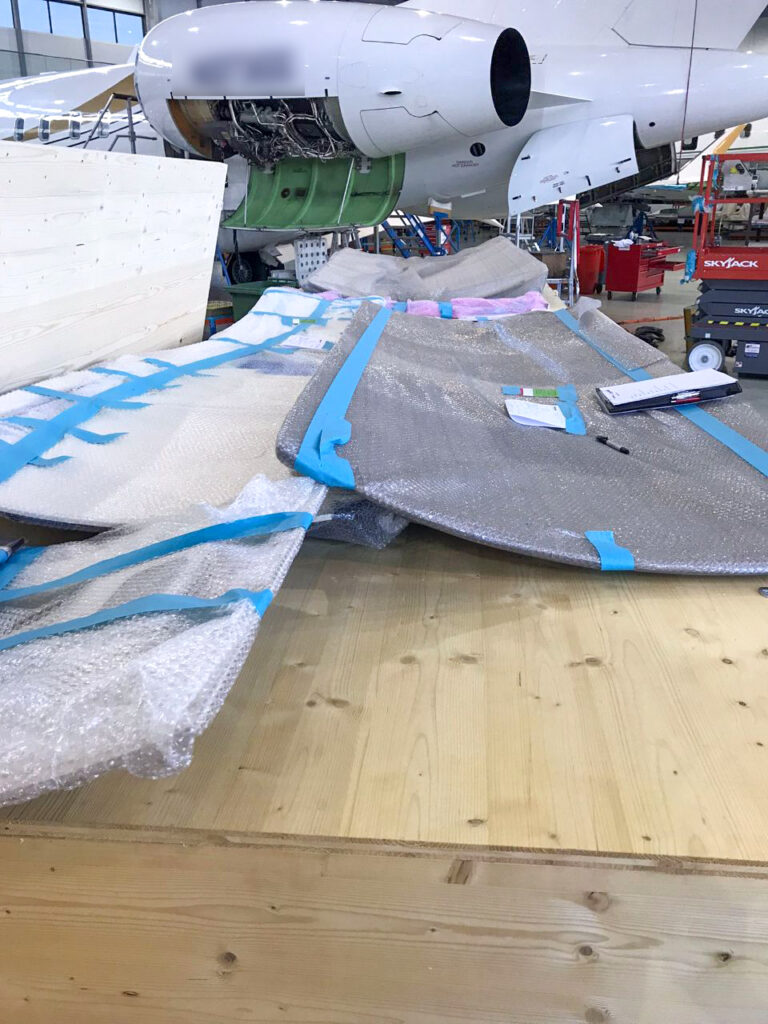
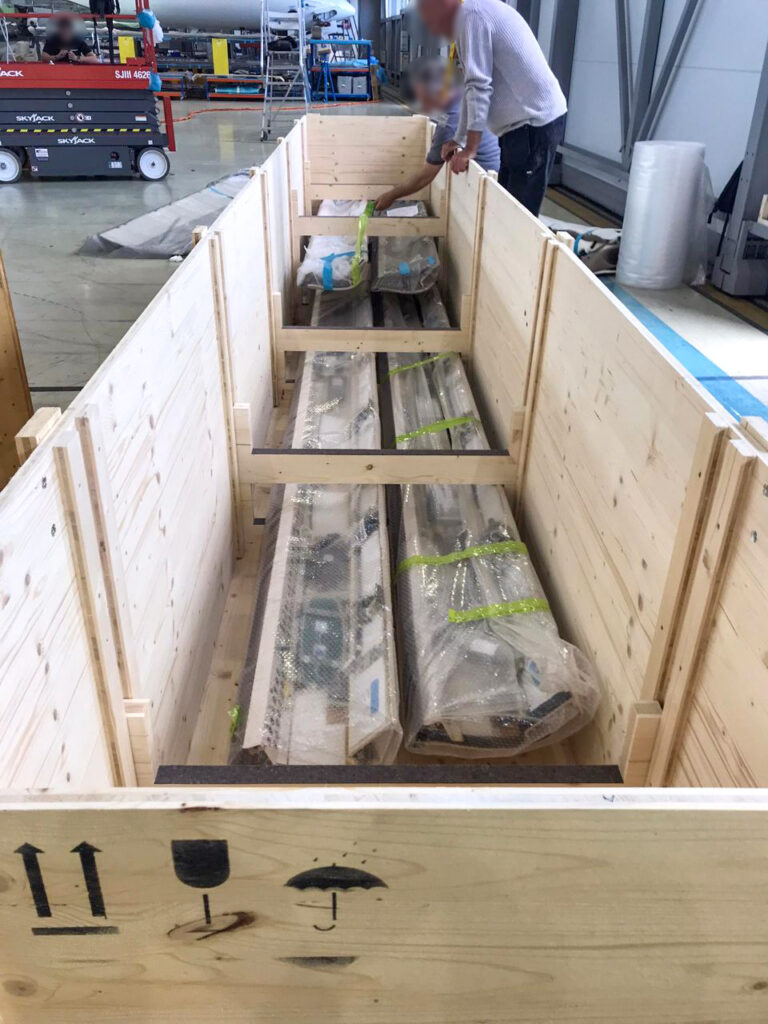
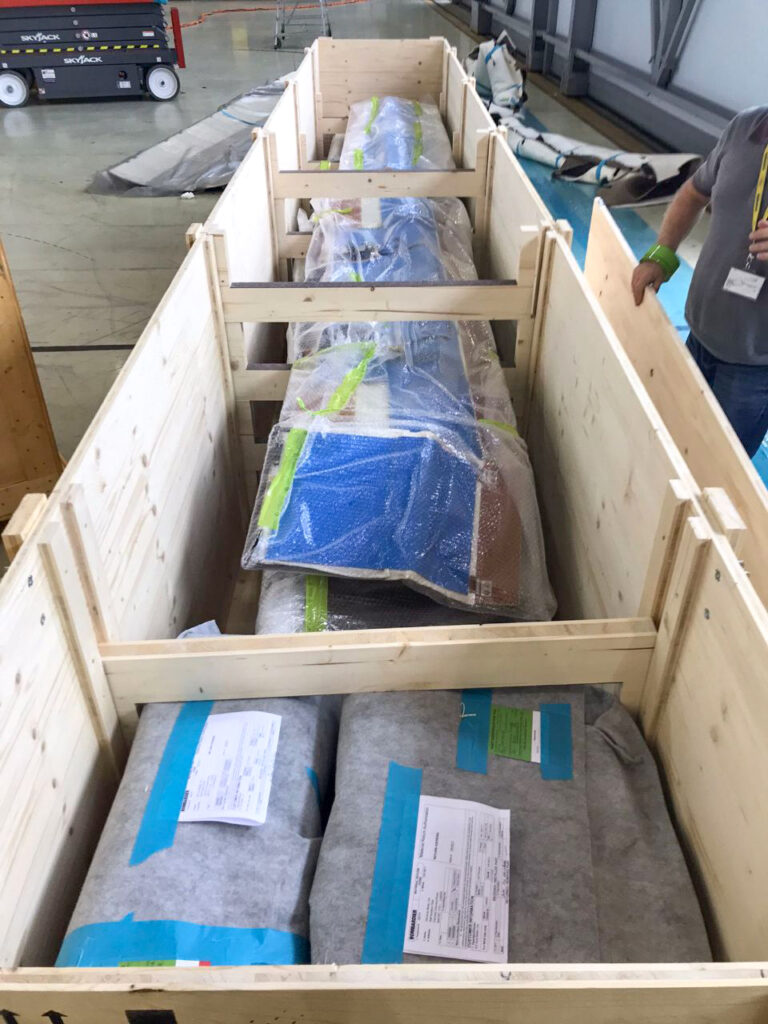

Let’s talk about Switzerland! Interview Part 2
Inside AeroVisto Group Let’s talk about Switzerland! INTERVIEW PART 2 In the first part of the interview, we learned what makes Switzerland so special as
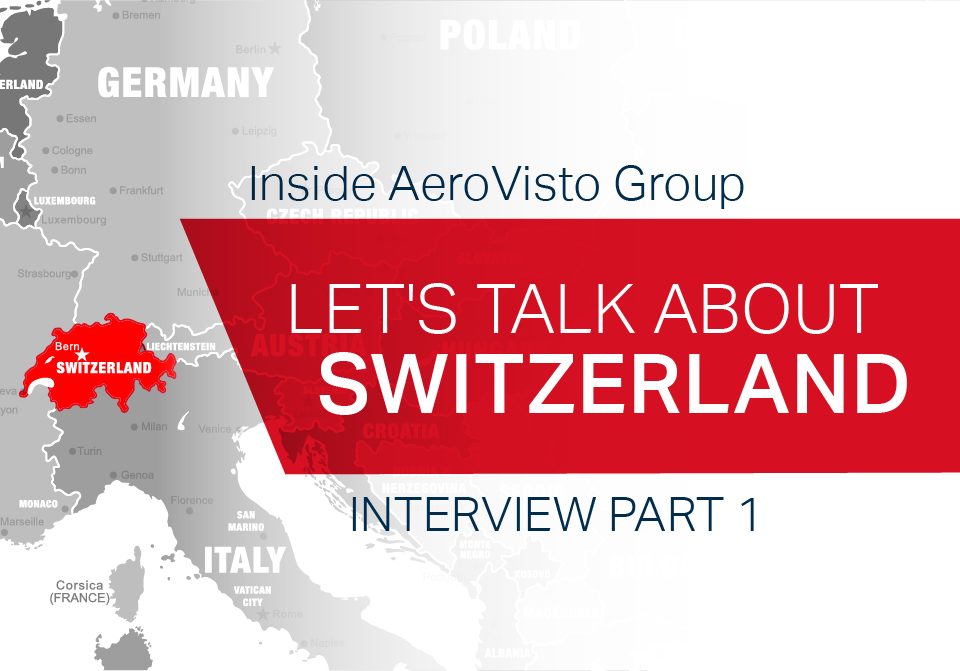
Let’s talk about Switzerland! Interview Part 1
Inside AeroVisto Group Let’s talk about Switzerland! INTERVIEW PART 1 In numerous discussions with our customers and partners, we are asked the same questions again

